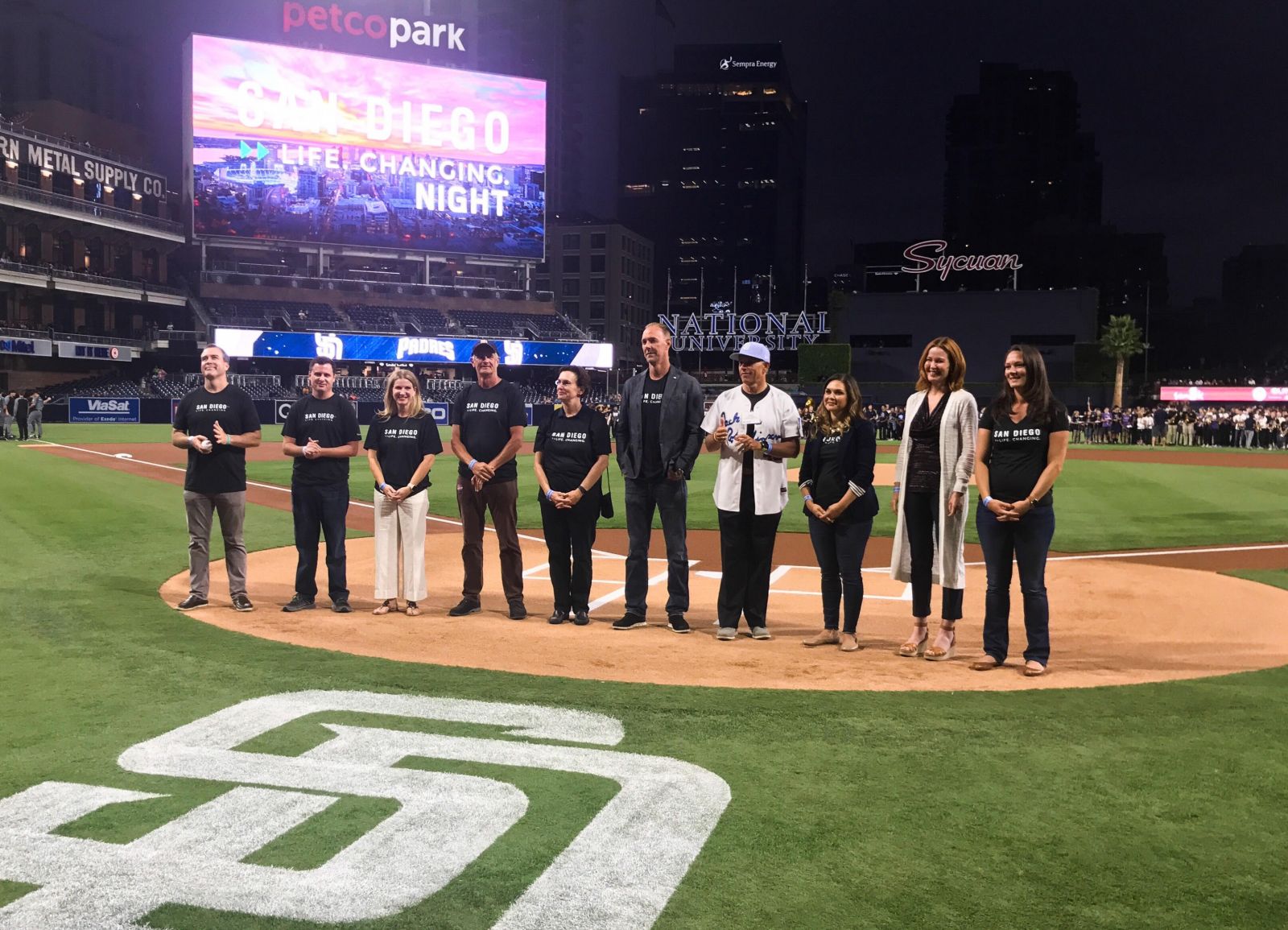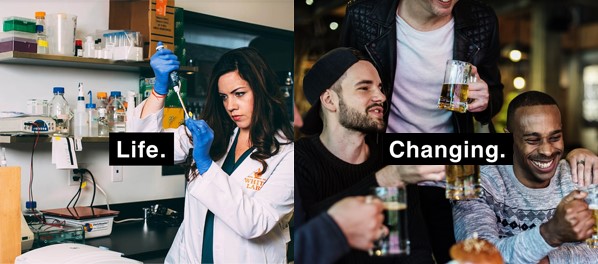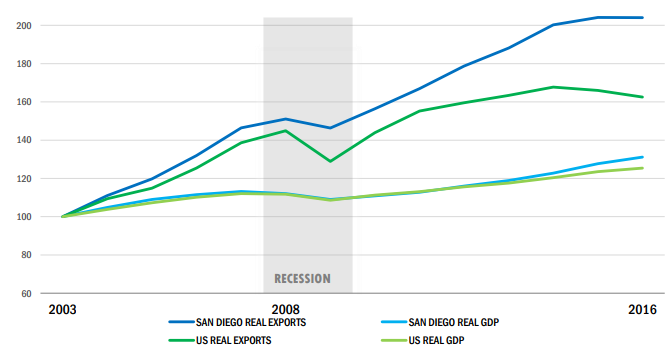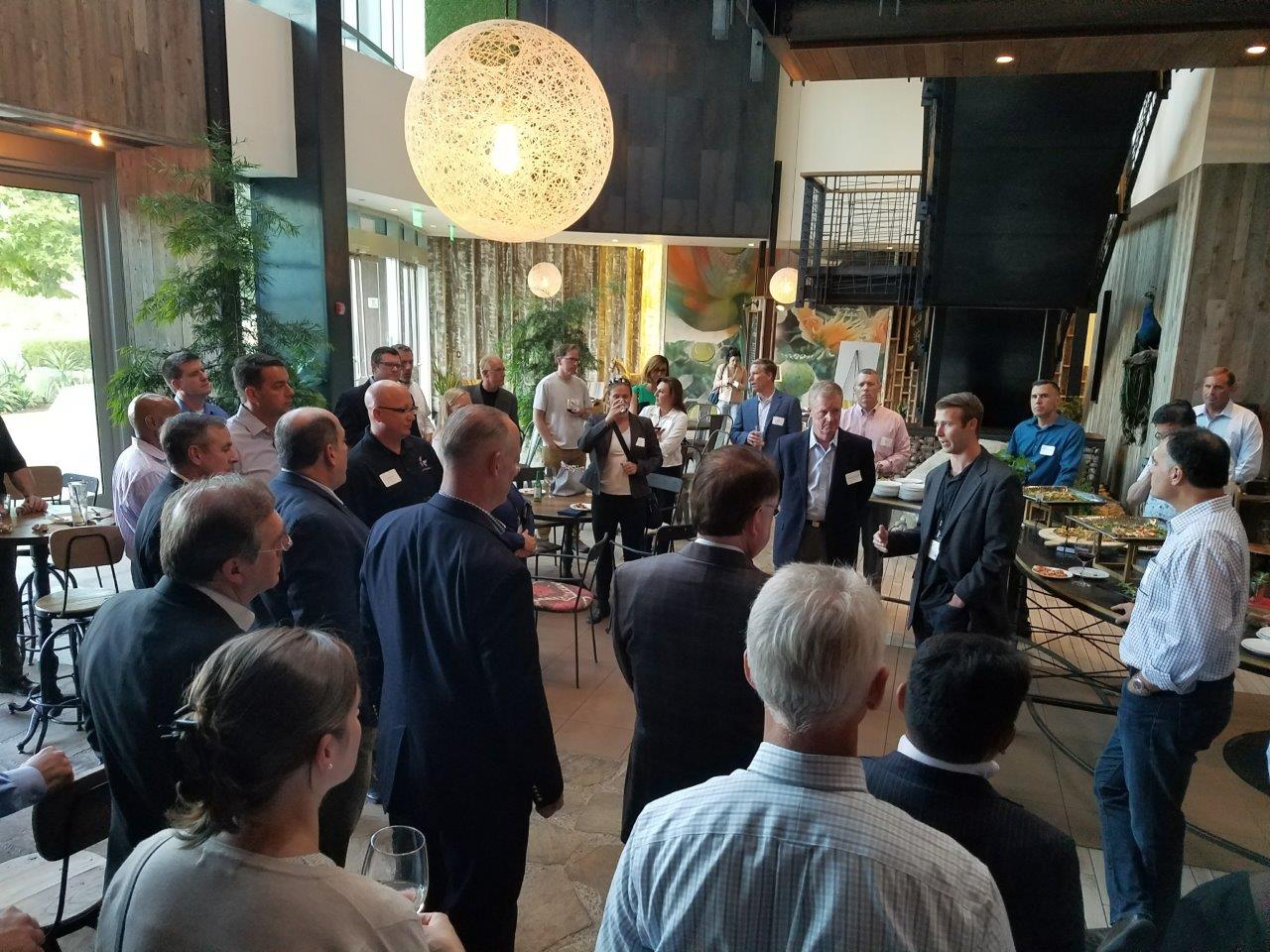By now, just about everyone has heard the news about Amazon and its pursuit to develop a second headquarters operation (HQ2), somewhere in North America. The announcement came out through Tech Crunch and The Wall Street Journal last month and spread like wild fire through economic development communities and elected offices across the nation. Suffice it to say that Amazon has created one of the most competitive business attraction processes in history. Cities, counties, even states, are bending over backwards to make their areas fit the profile that Amazon is seeking: a metro or suburban region with more than 1 million people, the ability to attract and retain tech talent and other amenities like direct flights to key markets.
With the input of EDOs and partners across the county and state, San Diego Regional EDC is coordinating a regional response to Amazon’s HQ2 proposal.
On paper, the region checks all the boxes that Amazon lists in its RFP. In addition, the region has a handful of quality sites that meet the requirements of their build out: ability to deliver 500,000 ft2 by 2019 and up to 8 million ft2 in subsequent phases. San Diego also has a top-tier tech workforce (Amazon has stated they could hire up to 50,000 people) and quality of life that is unparalleled throughout most of the world. But when you look beneath the surface, San Diego also needs to realize that Amazon is commanding what will inevitably be record-setting incentive packages, an area where the State of California has scarcely been competitive, and for good reason. Incentives rarely yield impacts that exceed the costs. Further, when trying to find the location for a truly Life. Changing. company, incentives usually are nothing more than marginalia. Talent, quality of life and the prospect of being able to succeed are ultimately the more important factors. Nonetheless, the process that Amazon has put forth will command hundreds of millions, if not billions in incentives – amounts that can change minds.
Second, San Diego can’t change its geography. There has been debate throughout this process whether being in the same time zone as Seattle (Amazon’s current HQ) would be a blessing or a curse. While there are “experts” on both sides of the argument, we ultimately don’t know what Amazon is looking for: West Coast ease of access to Seattle, East Coast access to financial and political centers and new talent pools, or somewhere in between. Only time will tell.
In summary, we don’t know where Amazon will ultimately end up. As an EDO, EDC is excited about the opportunity to bring our region together and present our best opportunities. It’s a good test to see just what we can do when the right opportunity comes along. In conjunction with partners from around the county and state, EDC will submit a response to Amazon’s RFP ahead of its October 19 deadline. After that, it’s anyone’s guess.
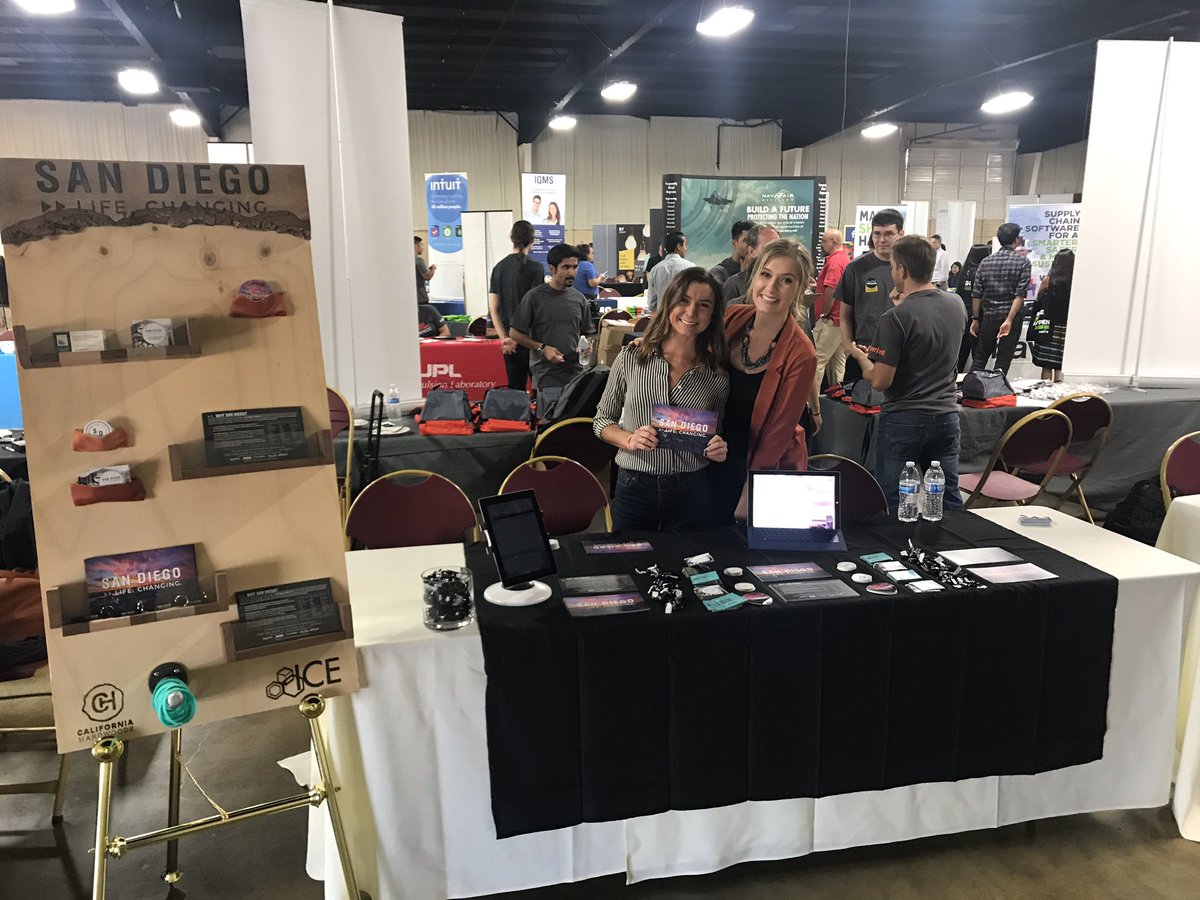 EDC’s booth, themed
EDC’s booth, themed 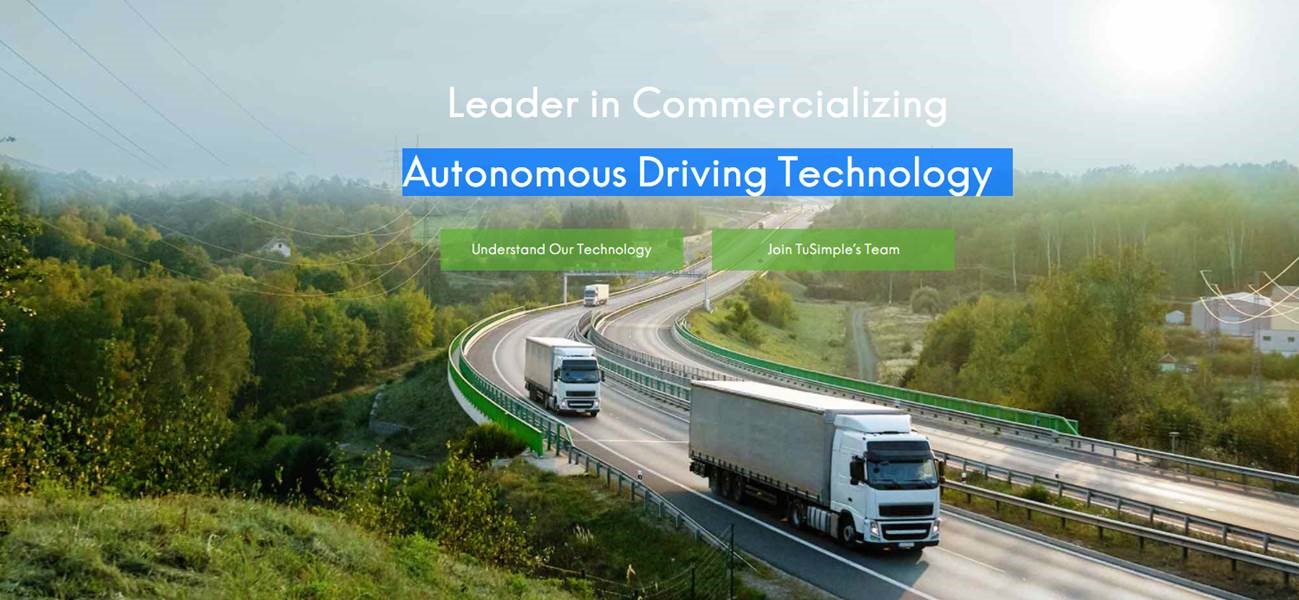
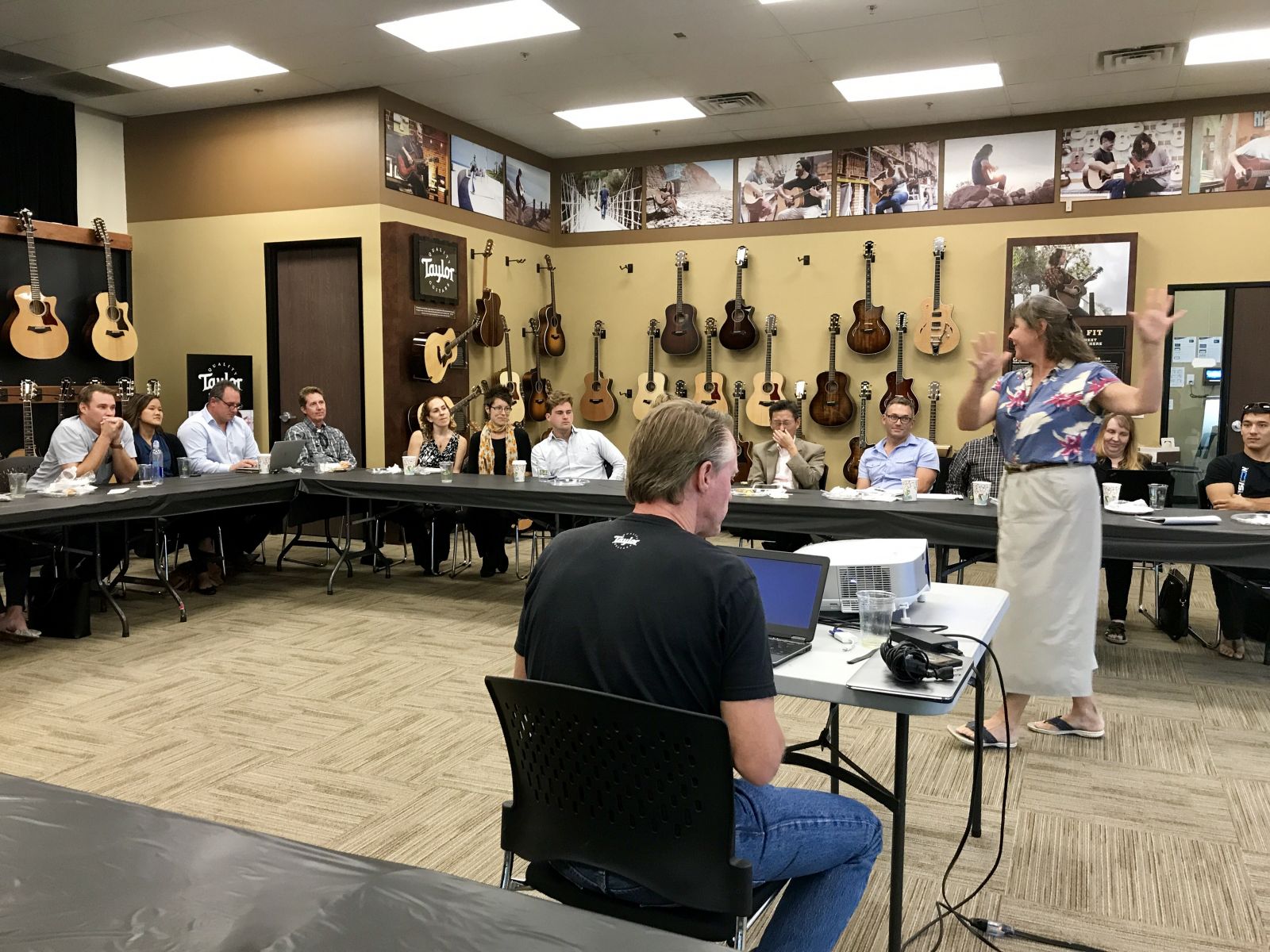 For the second consecutive year, East County-based guitar manufacturer Taylor Guitars generously played host to WTC San Diego and the 15 companies part of the MetroConnect program for a day-long export compliance workshop.
For the second consecutive year, East County-based guitar manufacturer Taylor Guitars generously played host to WTC San Diego and the 15 companies part of the MetroConnect program for a day-long export compliance workshop.